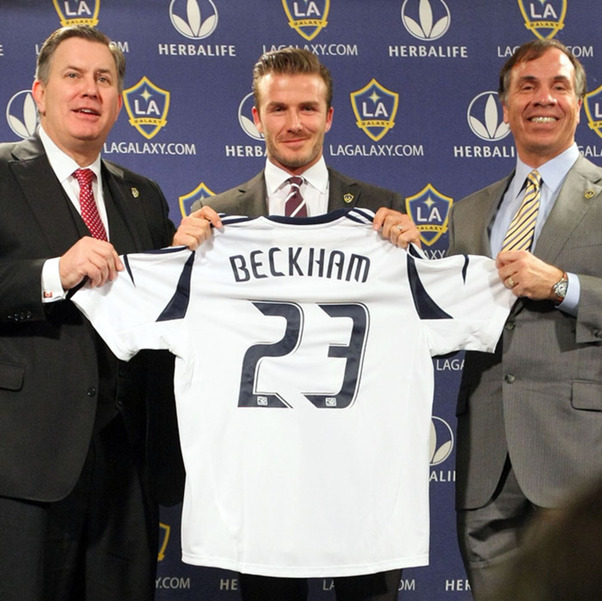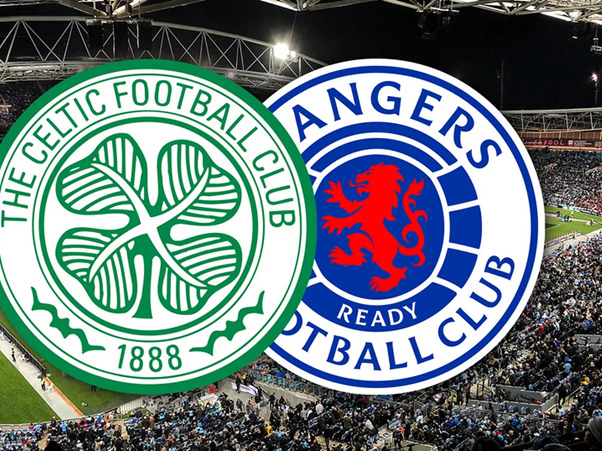

Almost every country has their domestic football league. While some leagues look alike regarding their system, some have a different way of working.
We have explained some of the most complicated leagues on today’s blog, so you never have to wonder about a league system again.


Unlike most football leagues in Europe, the Belgian competition will comprise two phases: the regular season and the playoffs. This is done to add more excitement to the league’s final outcome.
In the regular season, each of the sixteen teams faces each other twice. During the playoffs, the top six teams will compete for the title in the Champions Playoffs, while teams ranking 7th to 12th will participate in the Europe Playoffs. The remaining four teams (13th to 16th) will undergo Relegation Playoffs to determine demotion to the Challenger Pro League.
The Champions’ and Europe Playoffs will feature six teams each, with the points of these 12 clubs halved at the start of the playoffs. This is done to make the last ten matches more intense. The top three teams in the Champions Playoffs secure European tickets, and the fourth-place team engages in a single duel against the winner of the Europe Playoffs. The fourth-place team enjoys a home advantage.
Regarding relegation, the bottom four teams decide who will or will not be demoted over six matchdays in play-downs. Unlike the playoffs at the top, the play-downs have no halving of points. There will be a minimum of two and a maximum of three relegations. The team finishing first in the Relegation Playoffs remains in the Jupiler Pro League, while the second team faces additional playoffs against teams out of the Challenger Pro League.
The MLS does it their own way. The competition is split into two Conferences, with 29 teams in total. After the competition, the MLS teams will play in the playoffs for the MLS Cup, where the highest-ranked teams participate to be the winner of the year, the same as in the Super Bowl (the biggest sports event in the U.S. in American football).
The MLS is divided into a Western and Eastern Conference. The Western Conference has 14 teams, and the Eastern Conference has 15 teams. In the Eastern competition, there are two teams from Canada, and in the Western, there is one Canadian team. The regular season in the MLS runs from early March until early October. The rest of the year is filled with MLS Cup matches.
Each of the 29 MLS clubs is scheduled to participate in 34 matches in a regular season, evenly divided into 17 matches played at home and 17 away. In the Eastern Conference, all teams will face intra-conference opponents twice and six cross-conference opponents once. Meanwhile, in the Western Conference, teams will play intra-conference opponents twice, with an additional one to two intra-conference opponents facing each other once. Additionally, they will play one-time matches against six to seven different cross-conference opponents.
As the MLS Regular Season concludes, the top seven teams from each conference will secure automatic qualification for the Round One Best-of-3 series. The subsequent two teams in each conference standings will qualify for a single-elimination Audi MLS Cup Playoffs Wild Card match. The victorious teams in the Wild Card matches will then advance to join the Round One Best-of-3 series.
The video below explains more about the MLS playoffs and Cup:
MLS also distinguishes itself with its draft system, selecting players based on their performances in college and youth tournaments rather than relying on transfers or signings.
The uniqueness of the MLS draft system lies in its departure from the traditional transfer methods employed by other football organisations worldwide. Clubs build their rosters by choosing players through a draft, focusing on their achievements in college soccer and youth tournaments.
Annually held before each season, the SuperDraft presents teams with an opportunity to discover young talents capable of making an immediate impact. The draft consists of four rounds, with each team making one pick per round. The first overall selection holds particular prestige, often reserved for the most promising player available. This is done to This is done to make it more competitive between all the clubs next year. Many clubs also run academy programs to nurture talent from a young age.
Designated Player Rule
In a bid to attract renowned players globally, MLS implemented the designated player rule, allowing clubs to sign up to three players whose wages surpass the league’s salary cap without affecting it.
This rule has facilitated the arrival of prominent names like David Beckham, Thierry Henry, Zlatan Ibrahimovic, Lionel Messi, Sergio Busquets, and others in Major League Soccer, significantly boosting its popularity among soccer enthusiasts worldwide. 

The Scottish Premiership has the lowest number of teams in Europe competing on a high level. This causes them to work through a different system.
The Scottish Premiership comprises 12 teams; each season is 38 games long. This wouldn’t work via the most common system. The league is divided into three stages. In the first stage, everyone faces each other twice, once at home and once away. In the second stage, all teams will face each other once again, randomly decided home or away. In the last stage, the competition will be split in two, 1 to 6 and 7 to 12, and every team will play five more games, making it a total of 38 games.
This means that the biggest derby in the country, Celtic-Rangers, is played four times a year (if both teams finish in the top six, what happened the last eight years), which is quite good for the TV rights. This derby has been going on since 1888, when the clubs met each other for the first time. The Old Firm rivalry ended abruptly in 2012 when the Rangers franchise was liquidated. The club had to start again from the lowest league and was back in 2016-17 when the derby could be played again.
The Dutch First Division is the second league in the Netherlands and comprises 20 teams who all face each other two times. Nothing strange about this. The one thing that differs from the standard systems is how to promote to the Eredivisie. The league is divided into four periods, where a team can earn a spot in the playoffs for promotion.
Period 1: round of play 1 to 9
Period 2: round of play 10 to 19
Period 3: round of play 20 to 29
Period 4: round of play 30 to 39
The period champions win a bronze shield and a chance to be promoted to the Dutch Eredivisie. The playoff matches are played as follows:
First round:
Period champion 1 vs period champion 3
Period champion 2 vs period champion 4
Table number 3 vs table number 4
Second round:
The number 16 from the Eredivisie vs winner from match A
The winner from B vs the winner from C
Final round:
Both winners vs each other
This period champion gives an extra aspect to the first division league where when a team performs one period very well, it can still be promoted. For example, a team can end up as number 12 in the current table and still compete for promotion in the playoffs.
This is the smallest football competition in the world, consisting of two teams on The Scilly Isles, an island in the United Kingdom. Woolpack Wanderers and the Garrison Gunners face each other between fourteen and twenty times. Teams are selected at the start of the season in a local pub, where two appointed team captains select their players one at a time. The league runs from October until March or April. Woolpack Wanderers (15 titles in total) are the current champions, but the Garrison Gunners (20 titles in total) have held the most titles.
The Argentiniën Primera division has changed multiple times in recent years; formats, calendars, relegation systems and the mechanisms to classify for international competitions are altered from one semester to the next. This makes it complicated to grasp, even for their own citizens sometimes.
The Primera division has 28 teams competing in the league; they have a shorter competition where everyone faces each other only once. After that, they will play the Copa de La Liga.
The Primera division will kick off the 2023 calendar in Argentina. It will feature a round-robin format, playing against all teams once, spanning 27 matchdays. The first matchday is set for the last weekend of January.
The Copa de la Liga, won by Boca in the previous edition, will take place from mid-August to the end of the year. Similar to the prior season, it will consist of two groups of 14 teams each, with 14 matchdays, including an interzonal game. The top four teams from each group will advance to the quarterfinals.
Because of the recent changes in the promotion and relegation, we have summarised the current relegation and promotion system.
The Primera Nacional, the top-tier promotion category and the second division in Argentine football features 37 teams in the 2023 season, divided into two zones of 19 and 18 teams, respectively. The groups engage in round-trip duels, with the winners progressing to a decisive match for the first of two promotions. Independiente de Rivadavia emerged victorious against Almirante Brown in this decisive match. The remaining promotion spot is determined through a Reduced team, comprising the finalist Almirante Brown and the clubs finishing second to eighth in each zone.
The Reduced team’s first phase involves seven teams from each zone, excluding the final loser, competing in single-match duels. The pairings are as follows:
2A vs 8B
2B vs 8A
3A vs 7B
3B vs 7A
4A vs 6B
4B vs 6A
5A vs 5B
In the second phase, the loser of the final (Almirante Brown) joins the seven winning teams, and matches are determined based on the respective zone’s table positions, average points, goal difference, goals scored, or draw if there’s parity. This phase consists of two legs, and in the event of a tie, the better-positioned team advances to the semifinals.
The semifinals follow a similar pairing and criteria as the quarterfinals, with a two-legged format, and in case of a tie, the better-positioned team advances. The decisive final is a single match held on neutral ground. If tied, two 15-minute overtime periods are played, followed by penalties if necessary, determining the second promotion.
Regarding relegation in Argentine football 2023, contrary to expectations of three relegations, there will be two. One is determined by the average system, considering points accumulated from the 2021 League Cup, 2021 Professional League, 2022 League Cup, and 2022 Professional League, including the current season’s performance. Arsenal de Sarandí is confirmed for relegation through this system. The other relegation goes to the team with the poorest annual table performance, which is yet to be determined. If the last team is the same as the one relegated by average, the penultimate team in the table takes its place.
The top five football leagues, the English Premier League, Spanish La Liga, Italian Serie A, German Bundesliga, and French Ligue 1, have a standard system that is very similar to each other. But because these are the leagues that deliver the most to the international tournaments, it might also be interesting to dive into their league system.
All these leagues incorporate a system of promotion and relegation from their respective second divisions. The Champions League qualification is granted to the top four teams in all these leagues, except for Ligue 1, where it’s the top three.
The Bundesliga features 18 teams, while the other four leagues consist of 20 teams each.
Examining the relegation systems, the Bundesliga and Ligue 1 have two automatic relegation spots to the second division. In the Bundesliga, the team finishing third from the bottom competes against the third-placed team in Bundesliga 2 in a two-legged match. In Ligue 1, it’s a playoff between the teams placed third to sixth in Ligue 2.
For the Premier League, La Liga, and Serie A, the bottom three teams face automatic relegation, with two automatic promotions and one through playoffs. In the English Championship, the third-place team faces the sixth-place team, and the fourth face the fifth in the two-legged semifinals. The winners then compete in a one-off final at Wembley. In Spain, both matches in the playoffs consist of two legs. In Italy, teams placed third to eighth participate in the playoffs, with the fifth facing the eighth and the sixth facing the seventh initially. The subsequent winners face the third and fourth-place teams in two-legged semifinals, leading to a two-legged final.
While many aspects of Worldwide football leagues share similarities, some exceptions exist.

So now (hopefully), you even understand the most complicated leagues. Do you want to find out more about football leagues? Try our Football API for free.
Try for free